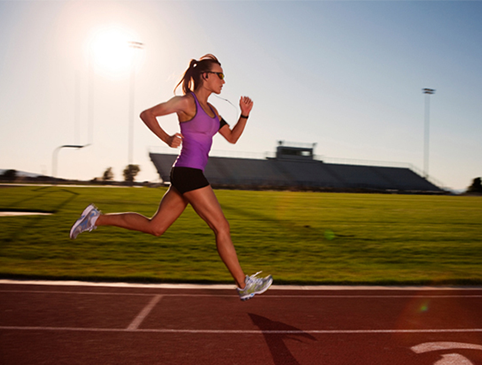Eating for Endurance

Eating for Endurance
Athletes train well in advance to get in shape and to gain that competitive edge. However, the area of nutrition is often overlooked and can make a major difference in a runner’s endurance, risk of injury and overall health. Those new to endurance training often turn to supplements for that edge, but may overlook what they are actually eating. A good nutrition program is important well before, during and in the recovery stage, on up to the next event.

Watch your fluid intake:
Thirst is not a good indicator. By the time you’re feeling thirsty, your body is well past the point of needing fluid. This could prove critical in the case of a marathon or even a half marathon. Water acts as a coolant to keep the body from overheating. As our body temperature rises during exercise, we sweat to release heat. Our body is about 60% water, which is quite amazing. As little as a 2% loss of fluid can adversely affect performance. In a 150-pound person this amounts to a weight loss of only 3 pounds. Weighing yourself before and after a workout is an easy way to assess fluid loss. For every pound lost, it’s important to replace it with about a pint (16 ounces) of water or fluid replacement. Many of us walk around in a mild state of dehydration. Get into the healthy habit of carrying a bottle of water with you and drink throughout the day.
Include plenty of carbs:
These days there’s lots of misinformation out there about carbohydrates. High protein, low carb diets are the new fad. The problem is that they don’t work long term for weight loss, and are especially risky for the endurance athlete. Studies show that perceived exertion and perception of fatigue is directly related to muscle glycogen stores. Our body uses carbohydrate as its main energy source, which breaks down into glycogen to fuel the muscles. Low carb diets can cause glycogen depletion, which can lead to fatigue, irritability, increased risk of injury and reduced performance.
To learn how the professional triathletes do it: (click here).
Pre-exercise recovery foods:
Complex carbs are the slow carbs and are the best choice before an event or workout. These foods break down more slowly and provide your muscles with a longer, more constant source of energy. Complex carbs are the starches, including bread, cereal, rice, pasta, beans and peas.
Post-exercise recovery foods:
Refueling after a workout is extremely important. This is the time to replace those glycogen stores. Research has shown that there’s a window of about 30 minutes after an event where the body is most able to ‘soak up’ and replace glycogen stores. Often a runner isn’t hungry and would much rather opt for a massage or a shower. However, it’s important to get about half a gram of carbohydrate per pound of body weight at this time. An easy way to compute this is to just double your body weight. This would give you the calories needed for recovery. Popular choices include sports drinks, energy bars and fruit. Eating carbs after a workout or run will improve your ability to train and recover effectively.
